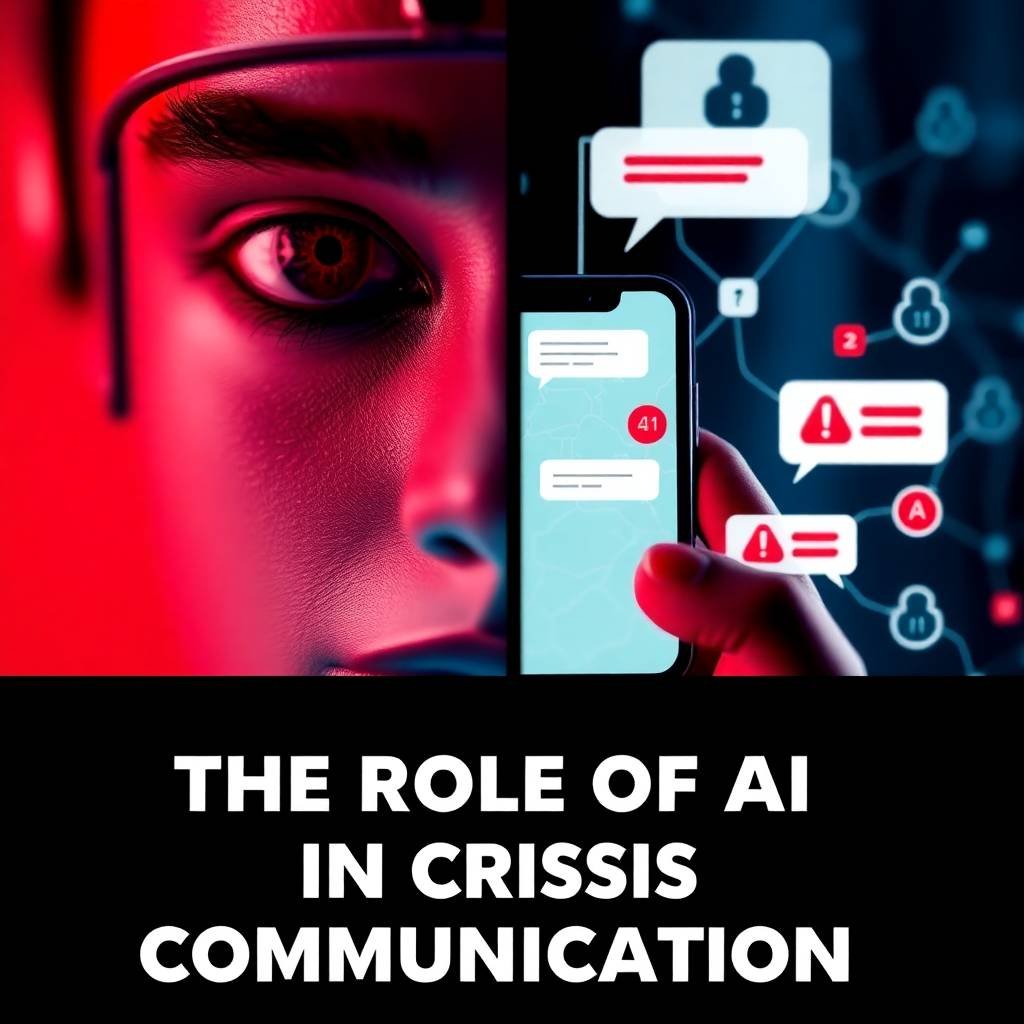Introduction
In an era where information spreads rapidly and crises can escalate quickly, effective communication is more important than ever. Organizations and governments must be prepared to manage and communicate during various emergencies, from natural disasters to public health crises. Artificial Intelligence (AI) is becoming a game-changer in this arena, providing innovative tools that enhance the speed, accuracy, and effectiveness of crisis communication.
Current Applications of AI in Crisis Communication
Real-Time Data Analysis
AI systems excel at processing and analyzing vast amounts of data from diverse sources in real time. This capability allows organizations to quickly identify emerging crises, assess their potential impacts, and make informed decisions on how to respond effectively. Real-time data analysis is particularly critical in situations where rapid response is necessary to mitigate harm.
Automated Messaging and Chatbots
AI-powered chatbots and automated messaging systems play a vital role in disseminating timely information during crises. These tools can handle a large volume of inquiries, ensuring that individuals receive accurate and consistent updates without overwhelming human responders. By providing instant responses, AI helps maintain clear communication channels and alleviates public anxiety.
Benefits of AI in Crisis Communication
Improved Responsiveness
AI technologies enable faster and more efficient communication during crises. By automating routine tasks and providing real-time insights, AI allows crisis managers to focus on strategic decision-making and coordination. This improves the overall responsiveness of crisis management efforts, ensuring timely and targeted actions.
Enhanced Accuracy
AI systems help reduce the risk of misinformation by delivering accurate and up-to-date information. This accuracy is crucial in maintaining public trust and ensuring that individuals have the necessary information to make informed decisions and stay safe during emergencies. The reliability of AI-driven insights helps organizations manage crises more effectively.
Challenges and Considerations
Ethical Concerns
The implementation of AI in crisis communication raises important ethical questions, particularly concerning privacy and data security. Organizations must ensure that AI systems handle sensitive information responsibly and comply with privacy regulations to protect individual rights.
Dependence on Technology
Relying heavily on AI technologies during crises can present risks if systems fail or are compromised. It is crucial for organizations to have backup plans in place and maintain human oversight to ensure continuity and reliability in communication efforts. Balancing technological reliance with human intervention is key to successful crisis management.
The Future of AI in Crisis Communication
As AI technology continues to evolve, its role in crisis communication is set to expand even further. Future advancements may include more sophisticated predictive analytics to anticipate potential crises before they occur, enhanced natural language processing for more effective communication across diverse audiences, and AI-driven simulations to prepare for various emergency scenarios. These developments promise to make crisis communication efforts more proactive and effective, enhancing the ability to manage crises efficiently.
Conclusion
AI is playing an increasingly important role in crisis communication, offering tools and strategies that enhance responsiveness and accuracy. While challenges remain, particularly in terms of ethics and technology reliance, the potential benefits of AI in managing crises are substantial. As technology advances, organizations that embrace AI will be better equipped to handle the complex challenges of crisis communication, ensuring they can respond swiftly and effectively in times of need.

